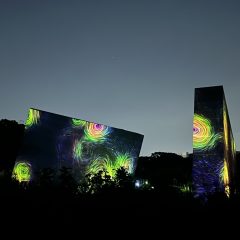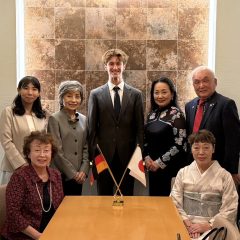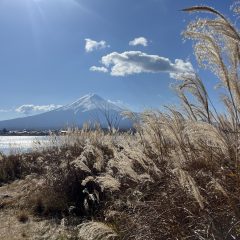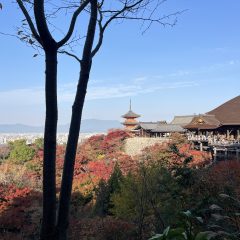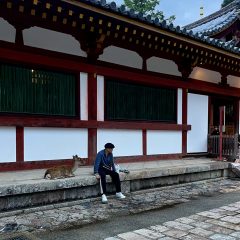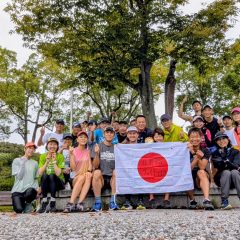☆☆☆Fourth report of Vincent Quiring, 24th scholarship holder of the GRÜNWALD foundation☆☆☆
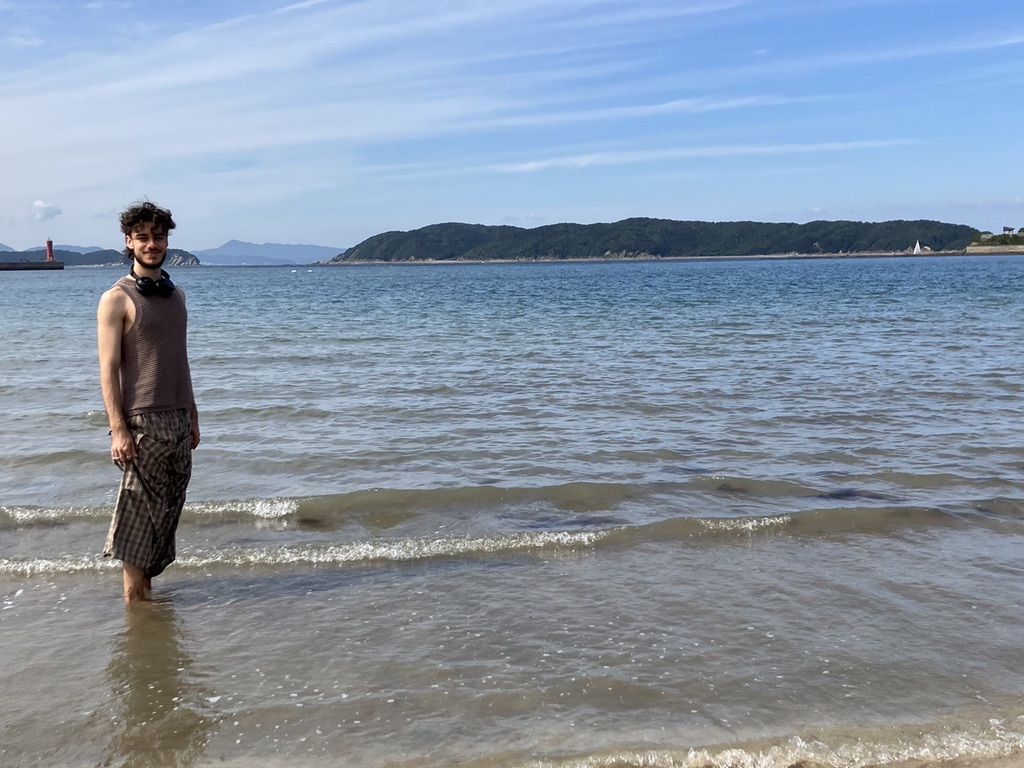
On a sunny, clear day, Sumiya Sensei, his colleague Towa and I set off for Wakayama. Sumiya Sensei, who runs a German/Japanese language school, invited me to accompany him on this little trip on German Unity Day at an event organized by the German Consulate General.
Without me having any great expectations, the three of us sat in Sumiya’s car and set off early in the morning.
When we arrived at the place in question, Miyama, after quite some time, we walked up a hill in the countryside. When we reached the top, I was amazed. From the top, there was an incredibly beautiful view of the sea and the neighboring islands. Filled with an idyllic, tropical feeling and the smell of the sea breeze in our noses, the three of us sat on a nearby bench and took in the moment together.
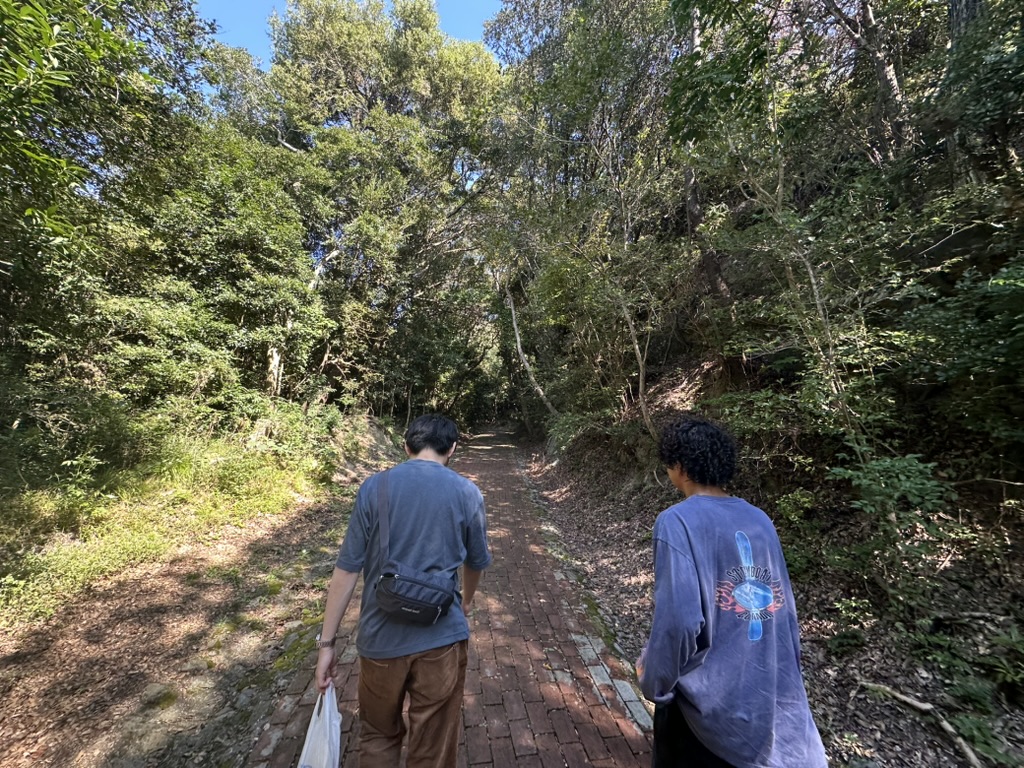
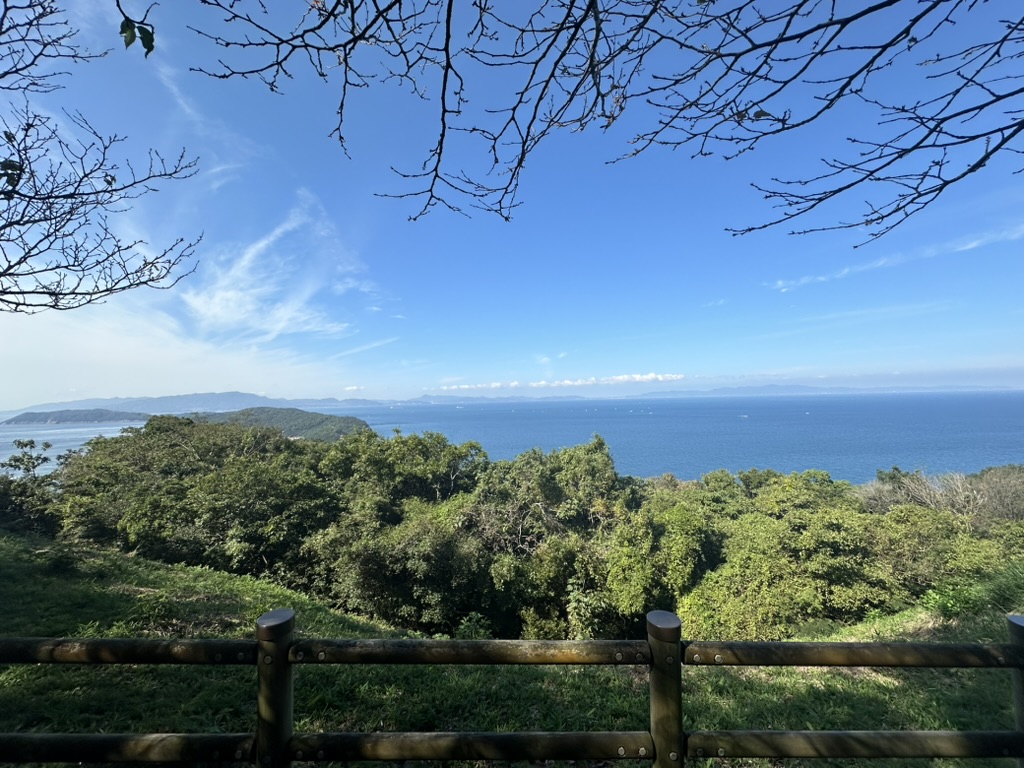
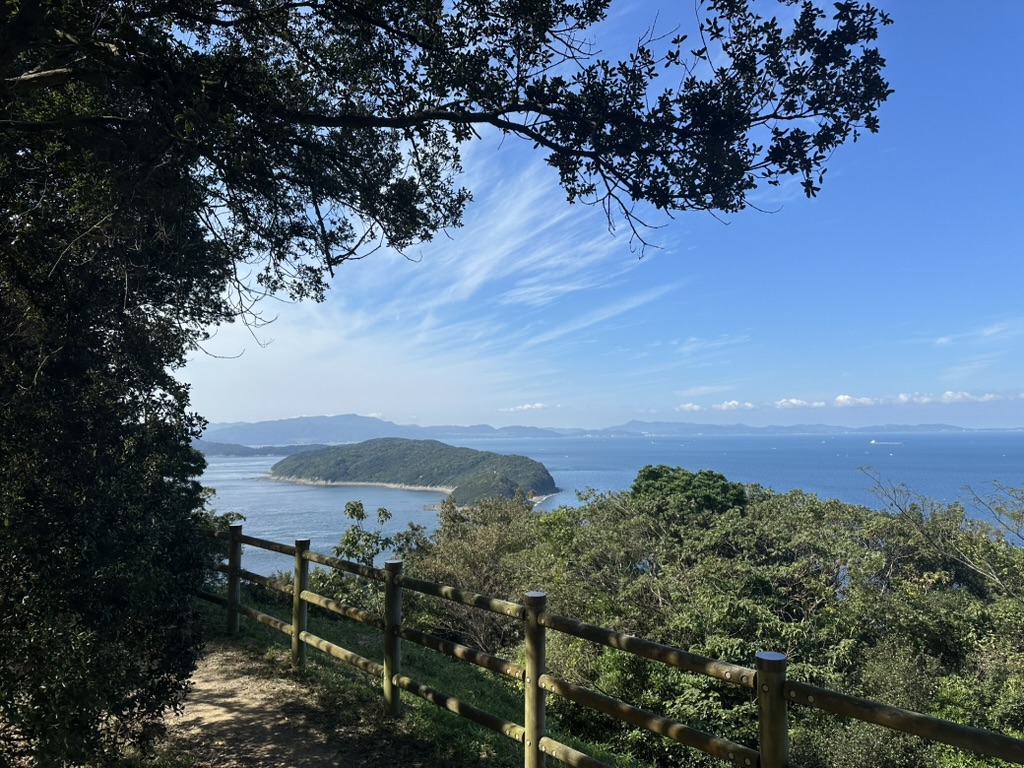
(Excursion to Miyama, hike and view from above)
After a few pleasant minutes, we continued our journey and found ourselves in a small local fishing village. A large, bright beach opened up before us, a view that one would hardly have expected in the urban part of Japan. And yet, the fact that we were able to immerse ourselves in so many different worlds so quickly was all the more wonderful. Both a lush urban structure, with an incredible number of opportunities for enjoyment, as well as beautiful mountains, cliffs and forests – even beaches – stretch out before you. As Japan is an island, it is sometimes hard to believe that you are still on the same island, once you get used to the cities and then encounter the lush nature. For me, coming from Bavaria, the idea of having both the sea and white, warm beaches within reach, and yet having the opportunity to ski in nearby mountains in winter, is incredibly picturesque. So it seems that Japanese people can enjoy a wide range of leisure activities and resorts if the hustle and bustle of city life gets too much for them. Lucky them!
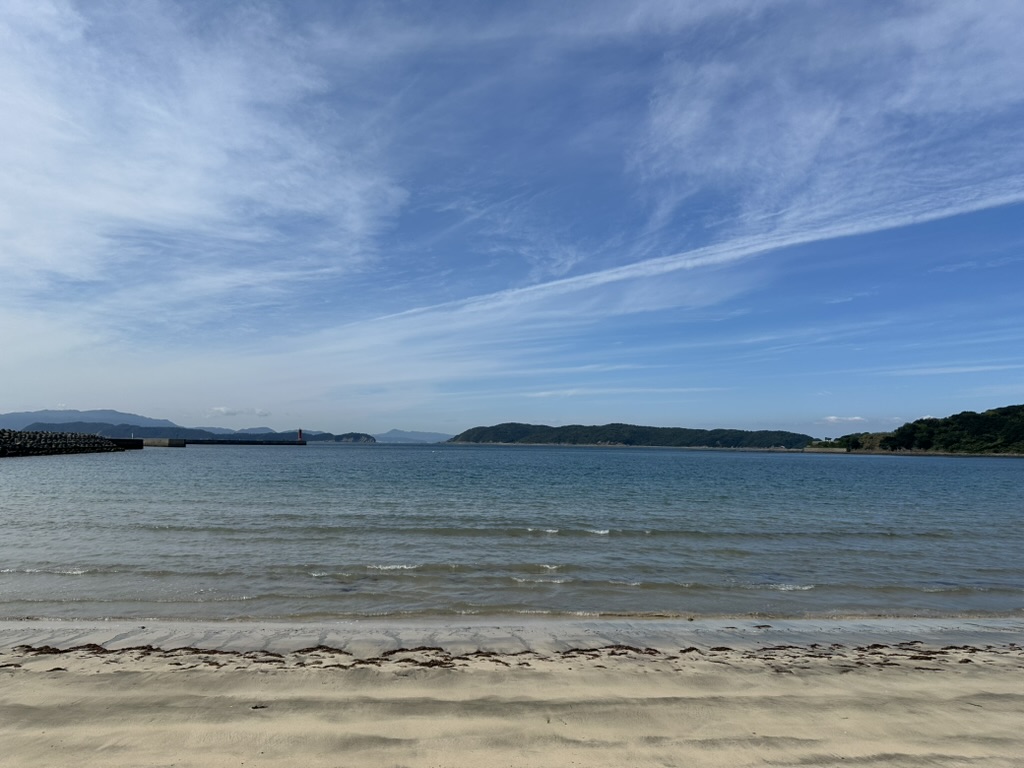
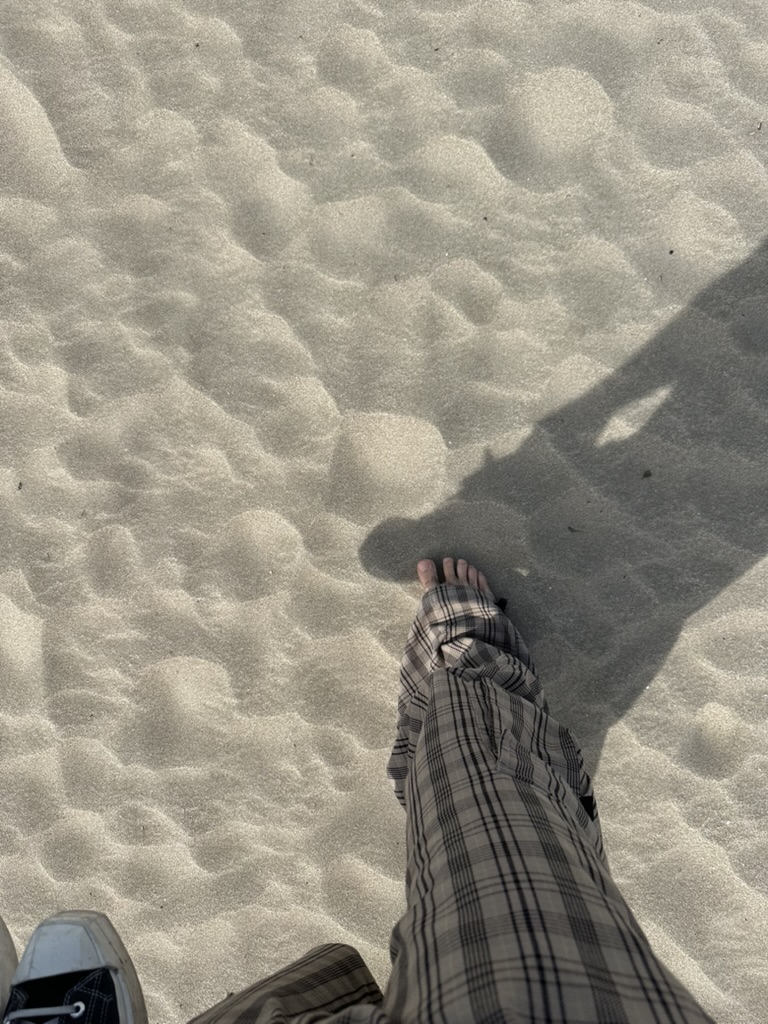

(A few relaxing minutes on the beach)
After a sumptuous meal in a small local restaurant where foreigners have probably never set foot, although this fact is only an assumption due to the remote location, the idea is a real shame, but at the same time it can also be a very nice one, as the food tasted really excellent and should never be changed by foreign preferences, we drove back to Osaka.
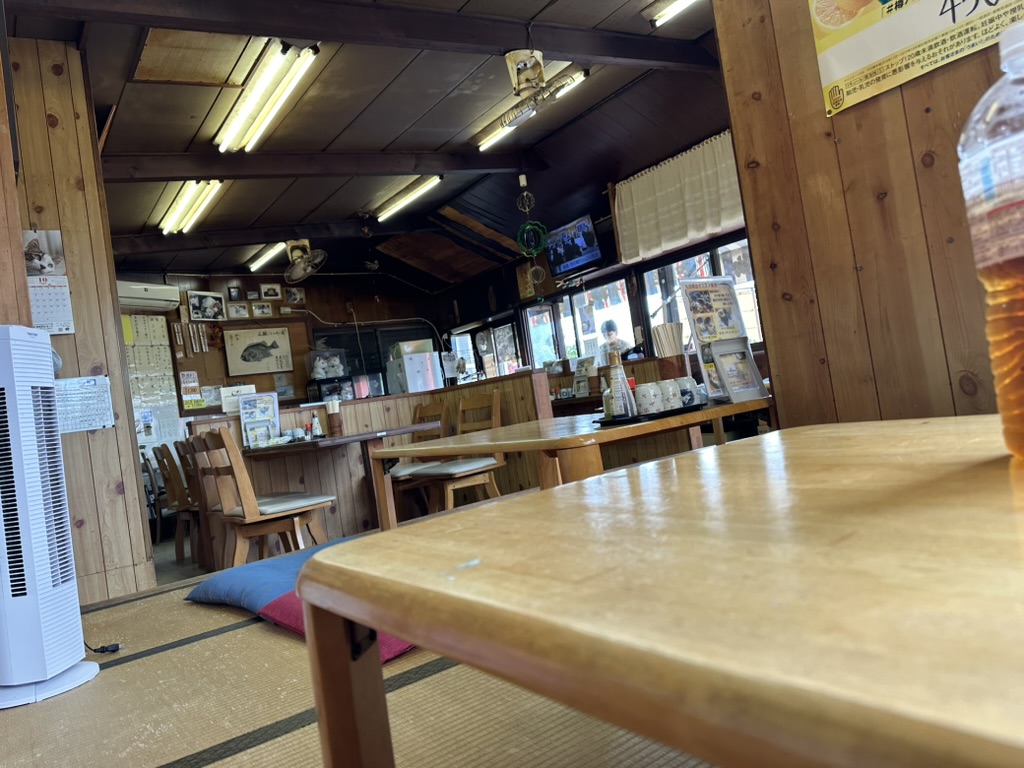
(Restaurant on the coast)
This day will probably stay in my memory for a very long time, as I felt truly light-hearted and free… Possibly due to the fresh sea air and the absence of gray, overwhelming, brutalist building constructions and intense, determined crowds (which can also have their charm 🙂 )
A few days later, the long-awaited “Polaris” event took place in Suita. This event was characterized by classical music and various concerts – of course, I had to visit it. In various combinations, be it piano and violin; piano, cello and clarinet and others, the artists filled the hall with sometimes heavy, thoughtful pieces, but sometimes also with joyful, cheerful sounds. However, I liked the first act of the first day best, a duet for piano and violin.
“Graceful, delicate and plaintive, the scenery of a sad leaf in the wind was described, moonlight wetting the spider’s web, like a weeping naiad, yet seemingly full of strength and defiance. An outcry of injustice, the desire to be unleashed, a call to the authorities, there all alone in the tower dungeon. Pigeons gather at the window, a cold storm pattering against the pane.
The watchmen climb the sky, raindrops on their feathers,” I wrote in my little notebook during the performance, absorbed by the music.
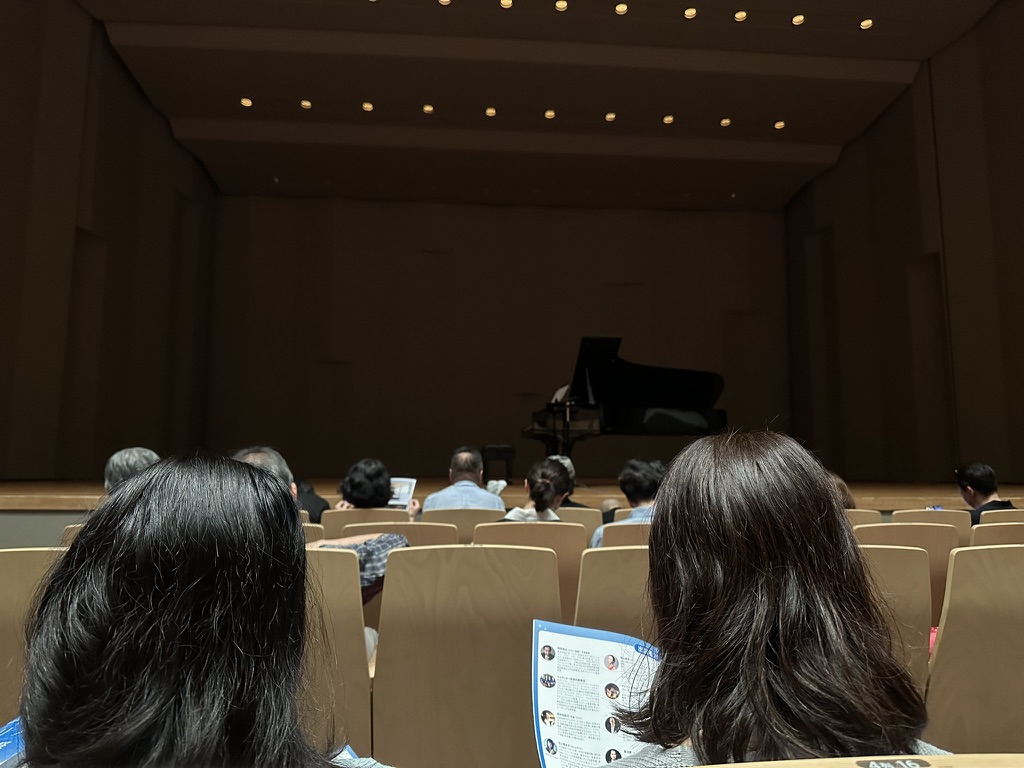
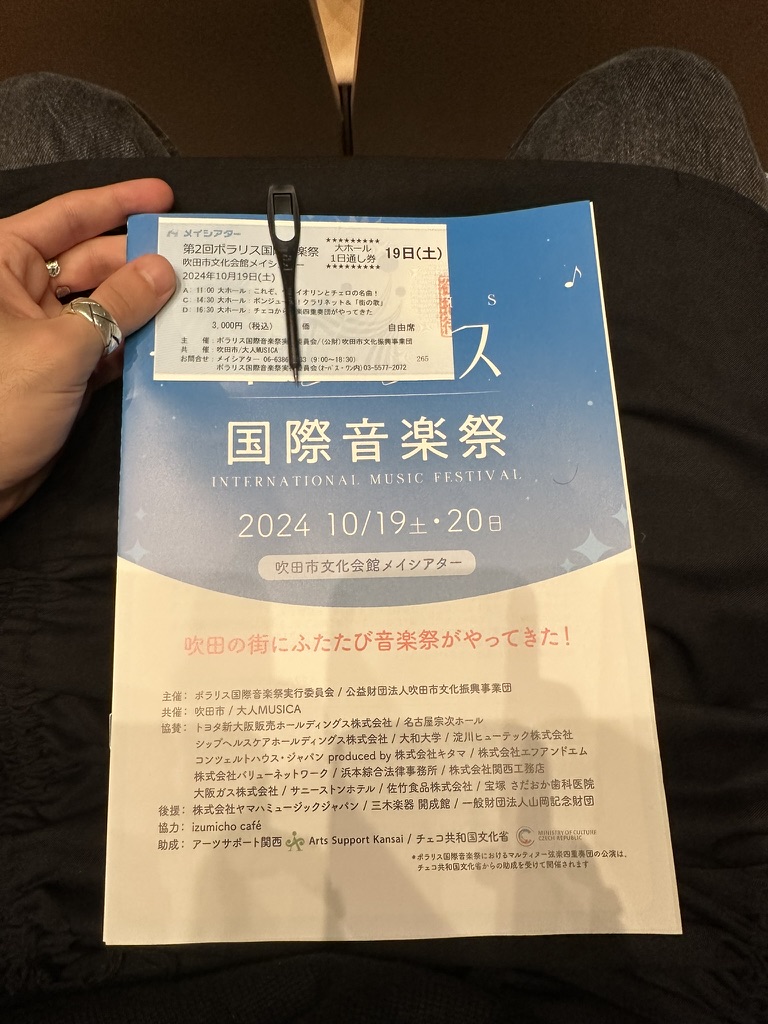
(Polaris Event)
But the other artists also amazed me. Especially the cello player, who developed such expressiveness during the piece, as if he alone wanted to tell us his own story.
“He loves what he does, he truly loves the music. Spellbound and captivated. Of shining, golden willows and golden, warm suns setting on a calm sea, mourning a dead friend. He tells us the truth of the world. Full of color, full of warmth, although the raindrops are coldly pressing his clothes against his bare skin. A spark of reality. Truly a radiance. To be so completely human is truly a masterpiece. A symphony of life that consistently surrounds us all. What is an instrument without an artist to play it. What is a sound without an angel to hear it? Vain.
A color palette is all we need. A color palette. Because at some point the colors run and give the fool a reason to exist. In the eternal search for colors, we become colorblind […]”, I also added to the above text, influenced by his music, in my book.
I liked Polaris very much, especially as it offered a simplified way to give many people the chance to get excited about classical music again!
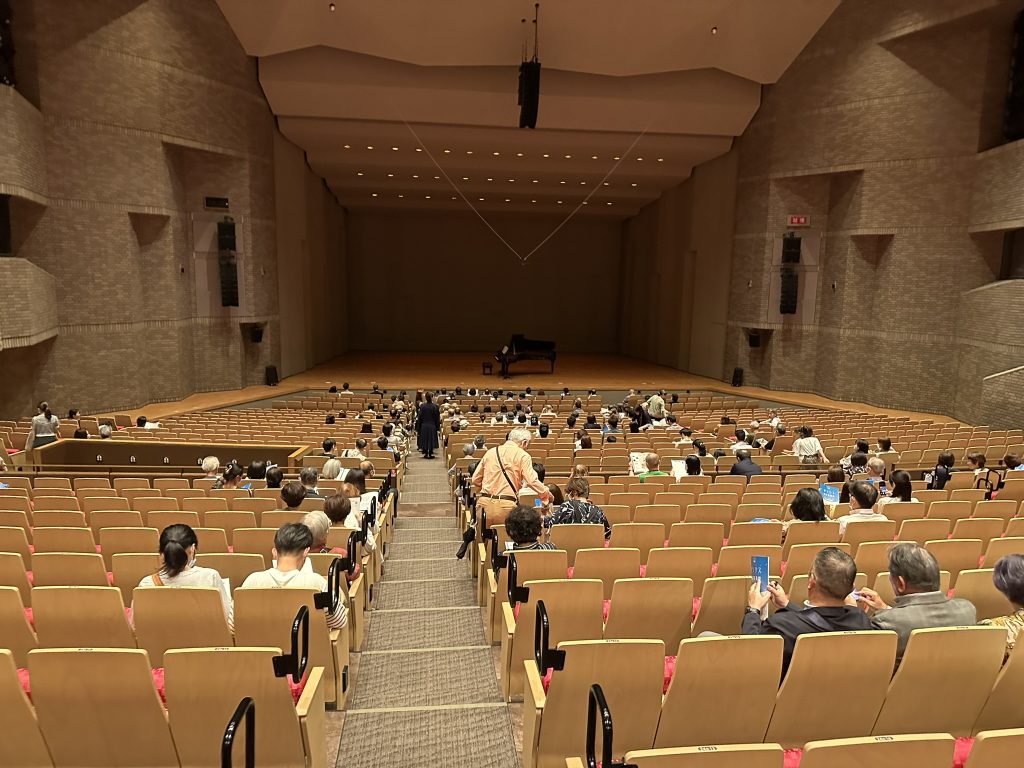
(Polaris – before the start of the event)
Finally, I would like to tell you about another special event that has enchanted me over the past two weeks – the Jidai Matsuri Festival. I was invited back to Professor Aochi’s home to experience this festival on site in Kyoto. On a beautiful balcony in the middle of downtown Kyoto, both I and many of his students marveled at the elaborate costumes and costumes of the participants. The Jidai Matsuri Festival is a throwback to Japanese times gone by, spanning different eras and periods, each characterized by different music and clothing presented by the exhibitors during the procession. It is a glimpse into the past that shows us how values, art and social norms have developed over the centuries. In a globalized world where cultural identities are often blurred, the festival reminds us of the importance of preserving and respecting our roots and traditions. Especially at a time when many cultures are in danger of disappearing, the Jidai Matsuri provides an inspiring example of how alive traditions can be and how they help to preserve cultural heritage for future generations.
I was very enthusiastic about how both young and old took an interest in this festival. The pride that Japan has in its own country is truly exemplary! This made me reflect strongly. In contrast to young Japanese adults, Germans of the same age unfortunately feel very little pride and compassion for their own country. Of course, this is mainly due to past historical, political and social disasters and therefore there is not much love for one’s own country. It is nice to be in a place where residents are proud to be part of their homeland.
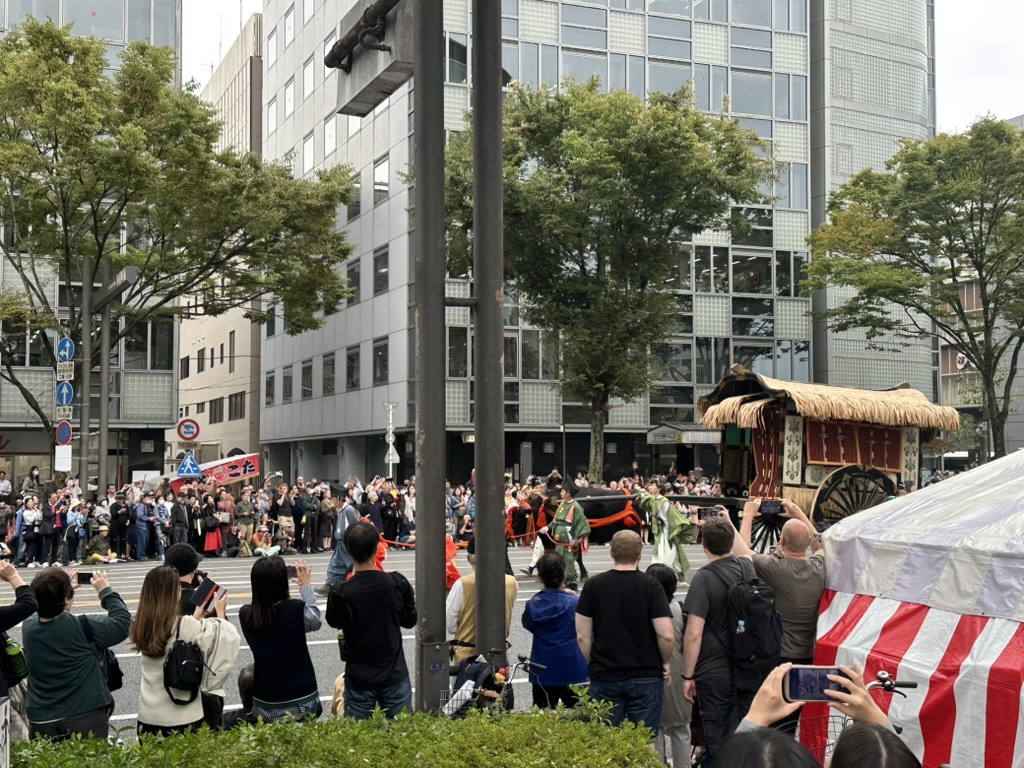
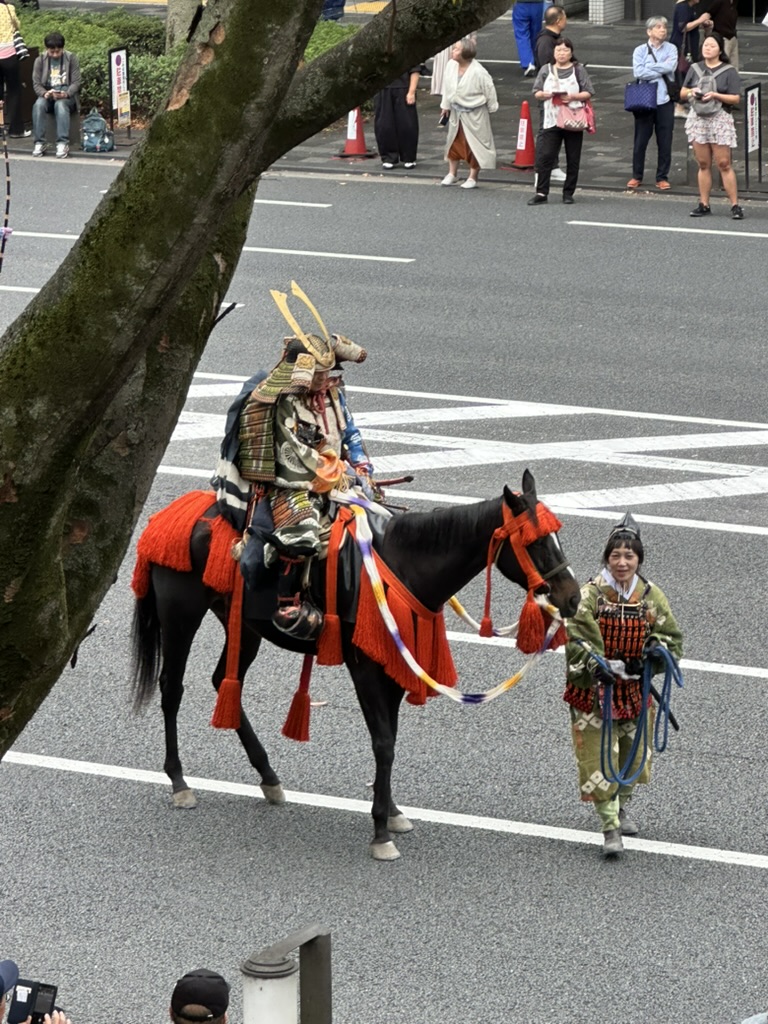
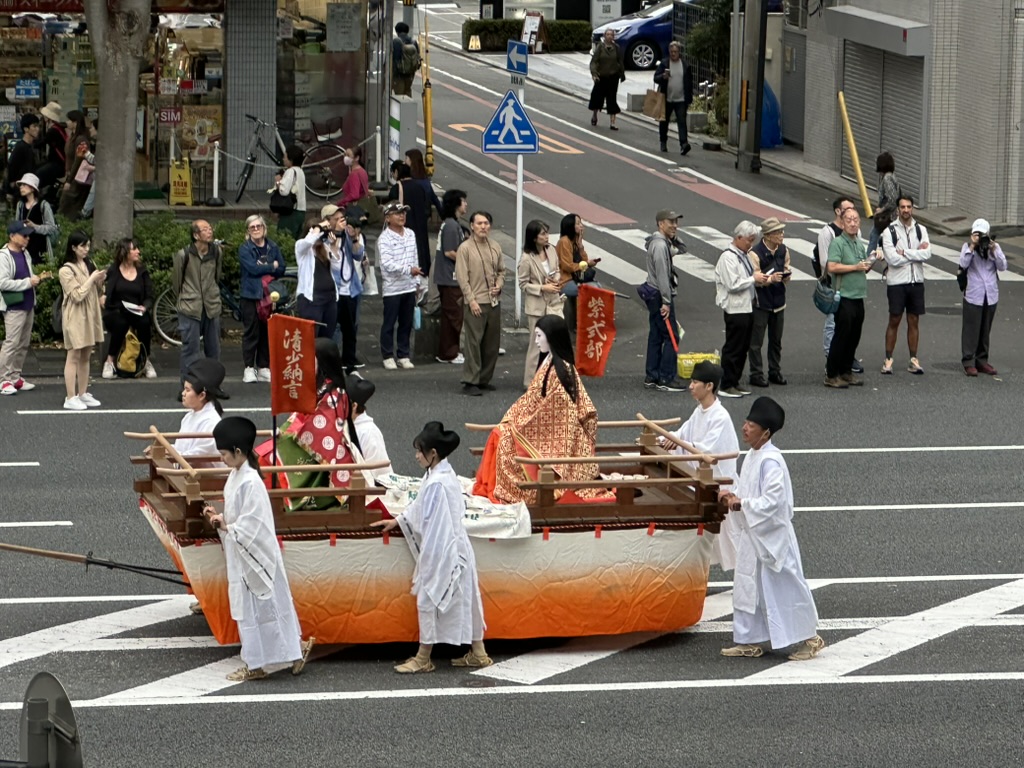
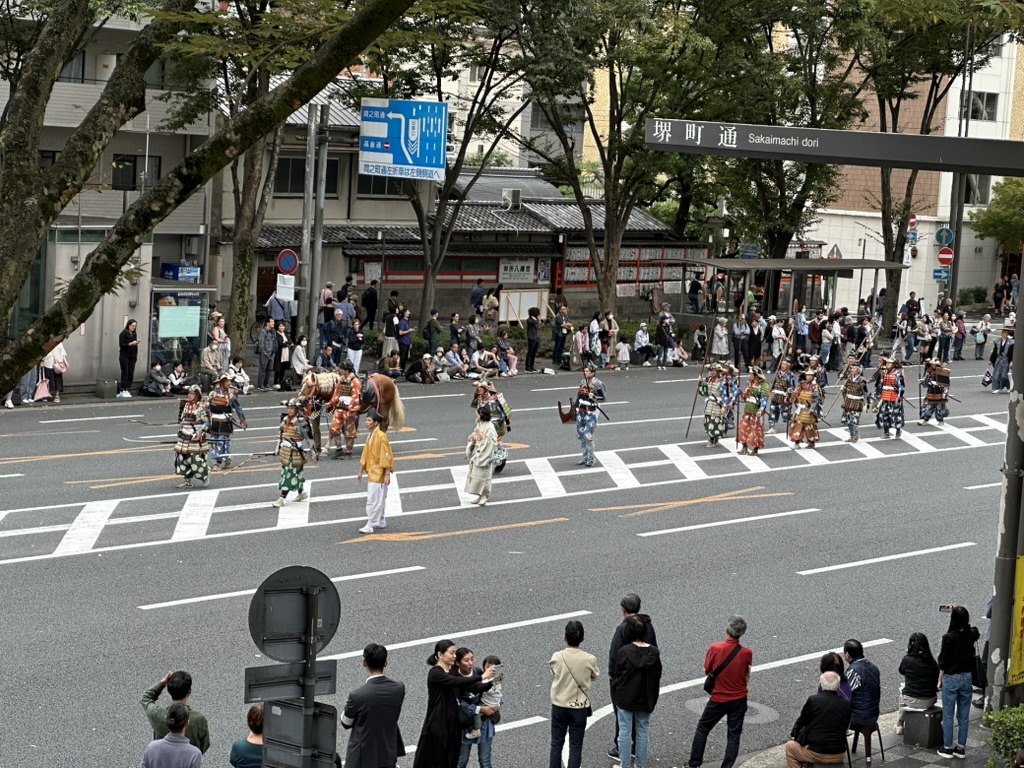
(Jidai Matsuri Festival)
Once again, I would like to thank you very much for the various impressions and experiences that I was able to gain over the past two weeks, and I hope for many more!
Thank you very much,
Vincent Quiring

